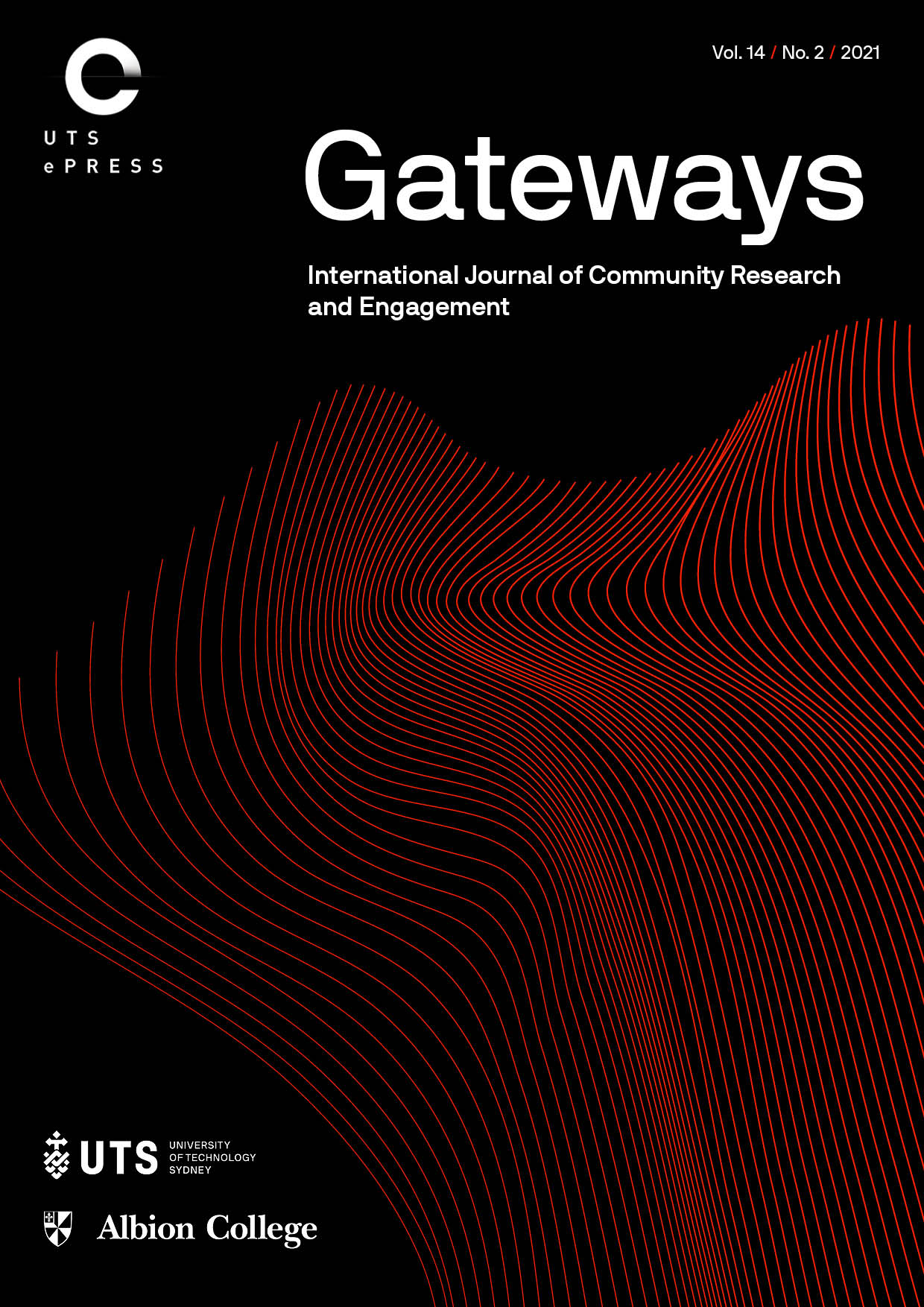Guest Editorial: Power in Engaged Scholarship: Dimensions and Dynamics of Knowledge Co-Creation
Main Article Content
Abstract
Collaboratively engaged research is shaped by dynamic power relationships among individuals, institutions and communities. Where some disciplines have explored the theoretical and methodological implications of power relations, the engagement movement writ large has suffered from a lack of explicit conceptual models and in-depth analyses of the role of power in the process of knowledge co-creation. Over the last 30 years, considerable attention has been paid to how resources and expertise within academic institutions can be brought to bear on the intractable social and economic problems of local communities. A necessary, yet under-theorised aspect of these dynamics is the extent to which the positionality and interpersonal relationships between actors impact the outcomes and durability of these processes. In this introductory article, we describe our effort to cultivate a conversation about power in engaged research. We organised an Author Collective for scholars and practitioners with a wide range of perspectives to expand our theoretical understanding of power’s role in university- community engagement. By reflecting on identities, approaches and experiences, the authors in this issue explore power as a vehicle for understanding the impact of positionality and interpersonal relationships on the process and outcomes of collaborative research.
Article Details
Issue
Section
Authors who submit articles to this journal from 31st March 2014 for publication, agree to the following terms:
a) Authors retain copyright and grant the journal right of first publication with the work simultaneously licensed under a Creative Commons Attribution License that allows others to share and adapt the work with an acknowledgement of the work's authorship and initial publication in this journal.
b) Authors are able to enter into separate, additional contractual arrangements for the non-exclusive distribution of the journal's published version of the work (e.g., post it to an institutional repository or publish it in a book), with an acknowledgement of its initial publication in this journal.
c) Authors are permitted and encouraged to post their work online (e.g., in institutional repositories or on their website) prior to and during the submission process, as it can lead to productive exchanges, as well as earlier and greater citation of published work (See The Open Access Citation Advantage Service). Where authors include such a work in an institutional repository or on their website (ie. a copy of a work which has been published in a UTS ePRESS journal, or a pre-print or post-print version of that work), we request that they include a statement that acknowledges the UTS ePRESS publication including the name of the journal, the volume number and a web-link to the journal item.
d) Authors should be aware that the Creative Commons Attribution (CC-BY) License permits readers to share (copy and redistribute the work in any medium or format) and adapt (remix, transform, and build upon the work) for any purpose, even commercially, provided they also give appropriate credit to the work, provide a link to the license, and indicate if changes were made. They may do these things in any reasonable manner, but not in any way that suggests you or your publisher endorses their use.
For Volume 6 (2013) and before, the following copyright applied:
Articles published by UTSePress are protected by copyright which is retained by the authors who assert their moral rights. Authors control translation and reproduction rights to their works published by UTSePress. UTSePress publications are copyright and all rights are reserved worldwide. Downloads of specific portions of them are permitted for personal use only, not for commercial use or resale. Permissions to reprint or use any materials should be directed to UTSePress.
